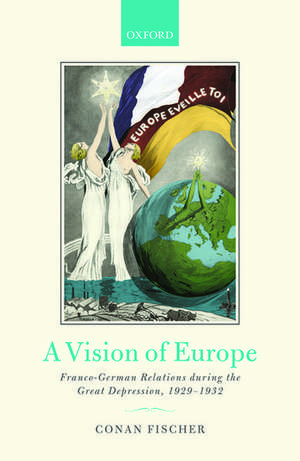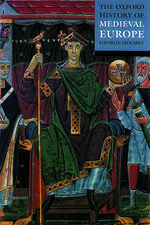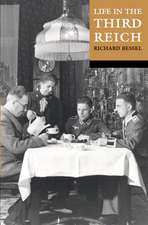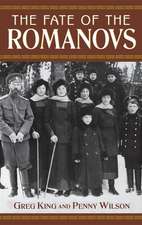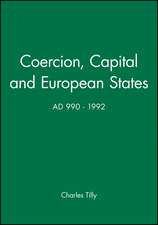A Vision of Europe: Franco-German Relations during the Great Depression, 1929-1932
Autor Conan Fischeren Limba Engleză Hardback – 9 feb 2017
Preț: 591.73 lei
Preț vechi: 849.59 lei
-30% Nou
Puncte Express: 888
Preț estimativ în valută:
113.33€ • 116.76$ • 94.93£
113.33€ • 116.76$ • 94.93£
Carte tipărită la comandă
Livrare economică 13-19 februarie
Preluare comenzi: 021 569.72.76
Specificații
ISBN-13: 9780199676293
ISBN-10: 0199676291
Pagini: 222
Dimensiuni: 183 x 241 x 20 mm
Greutate: 0.47 kg
Editura: OUP OXFORD
Colecția OUP Oxford
Locul publicării:Oxford, United Kingdom
ISBN-10: 0199676291
Pagini: 222
Dimensiuni: 183 x 241 x 20 mm
Greutate: 0.47 kg
Editura: OUP OXFORD
Colecția OUP Oxford
Locul publicării:Oxford, United Kingdom
Recenzii
In about two hundred pages, Fischer presents us with a detailed but highly readable narrative laid out in six chronological chapters that combine mastery of the sources with sparkling analysis; well-chosen subheadings help to resolve inevitable tensions between the thematic and chronological in marshalling abundant evidence from a host of politicians, diplomats and from NGO activists.
[Fischer] builds a strong case for reconsidering the nature of Franco-German relations during the first years of the Depression....Recommended.
[Fischer] does much to correct some of our preconceived ideas about Franco-German relations between Stresemann's death and the collapse of Weimar democracy.
[Fischer] builds a strong case for reconsidering the nature of Franco-German relations during the first years of the Depression....Recommended.
[Fischer] does much to correct some of our preconceived ideas about Franco-German relations between Stresemann's death and the collapse of Weimar democracy.
Notă biografică
Born in Wellington, New Zealand, Conan Fischer is an Honorary Professor in the School of History at the University of St Andrews. He graduated in European Studies from the University of East Anglia in 1972 and received his DPhil from the University of Sussex in 1980 with a thesis on the social history of the Nazi storm troopers. He worked from 1976 at the University of Aston in Birmingham, from 1979 at Heriot-Watt University Edinburgh, and from 1989 at the University of Strathclyde before moving to St Andrews in 2010. His earlier research and publications concentrated on Nazism and Communism in inter-war Germany, before turning to the history of inter-war Europe and in particular Franco-German relations.
